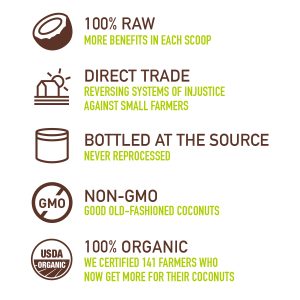In a world where global supply chains intertwine nations, the concept of choosing locally sourced produce has emerged as a powerful antidote to the environmental challenges posed by long-distance transportation and industrial farming. The environmental implications of opting for local produce extend far beyond the dinner table, influencing factors such as carbon emissions, biodiversity, and sustainable land use. In this article, we delve into the green ripple effect of choosing locally sourced produce, exploring how this decision can contribute to a more sustainable and resilient planet.
1. Reduced Carbon Footprint:
One of the most significant environmental benefits of choosing locally sourced produce is the reduction in carbon emissions associated with transportation. When consumers opt for fruits, vegetables, and other goods produced nearby, the need for long-distance shipping decreases. This reduction in transportation miles translates to lower carbon emissions, contributing to efforts to mitigate climate change and decrease reliance on fossil fuels.
2. Lower Energy Consumption:
The energy required to transport food over long distances is substantial, involving refrigeration, storage, and distribution. By choosing locally sourced produce, consumers contribute to lower energy consumption in the overall food supply chain. The shorter distances traveled result in less energy expended, aligning with principles of energy conservation and reducing the environmental impact of the food industry.
3. Preservation of Biodiversity:
Local and regional agriculture often fosters biodiversity by supporting a variety of crops that are well-suited to the specific climate and soil conditions of a particular region. This diversity is crucial for maintaining resilient ecosystems and protecting against the risks associated with monoculture, such as susceptibility to pests and diseases. Choosing locally sourced produce encourages the preservation of regional biodiversity and supports ecosystems that are adapted to the local environment.
4. Sustainable Land Use:
Local farming practices are often more in tune with sustainable land use principles. Small-scale, local farmers are more likely to employ environmentally friendly practices, such as crop rotation, cover cropping, and agroforestry, which enhance soil health and minimize environmental degradation. By choosing locally sourced produce, consumers indirectly support farming methods that prioritize the long-term sustainability of the land.
5. Water Conservation:
Local agriculture tends to be more attuned to water conservation practices, especially in regions where water resources are limited. Local farmers are likely to use irrigation techniques that maximize water efficiency and reduce overall water consumption compared to large-scale, industrial agriculture. Choosing locally sourced produce supports responsible water management, contributing to the conservation of this precious resource.
6. Support for Local Economy:
The environmental implications of choosing locally sourced produce extend to economic sustainability. Supporting local farmers and producers fosters regional economic resilience, reducing dependence on distant suppliers. This support helps maintain local communities and agricultural traditions, preventing the conversion of agricultural land into non-agricultural uses that may have more severe environmental consequences.
7. Reduction of Food Waste:
The shorter supply chains associated with locally sourced produce contribute to a reduction in food waste. Fresher produce often has a longer shelf life, and the proximity of farms to consumers allows for more efficient harvesting and distribution. Reduced transportation time also means less spoilage during transit, minimizing the overall environmental impact of wasted food.
8. Community Engagement and Education:
The choice to opt for locally sourced produce often leads to increased community engagement and education about sustainable agriculture. Local farmers’ markets, community-supported agriculture (CSA) programs, and farm-to-table initiatives create opportunities for consumers to connect directly with producers. This engagement fosters a greater understanding of the environmental implications of food choices and encourages more sustainable practices.
9. Resilience to Global Supply Chain Disruptions:
The COVID-19 pandemic highlighted the vulnerability of global food supply chains to disruptions. Choosing locally sourced produce enhances resilience against such disruptions by promoting self-sufficiency at the regional level. A robust local food system is better equipped to withstand shocks, ensuring a more reliable and sustainable source of nourishment.
10. Protection of Local Ecosystems:
Local agriculture is often embedded within unique ecosystems, and the preservation of these ecosystems is crucial for maintaining overall environmental health. Choosing locally sourced produce helps protect local ecosystems from the pressures of large-scale, industrial agriculture. Preserving these ecosystems contributes to the conservation of wildlife habitats, soil quality, and overall ecological balance.
11. Promotion of Seasonal Eating:
Opting for locally sourced produce encourages seasonal eating, aligning consumption with natural growing cycles. Seasonal eating reduces the need for energy-intensive methods such as greenhouse cultivation or long-term storage, promoting a more sustainable and environmentally friendly approach to food production and consumption.
12. Regeneration of Soil Health:
Many local farmers prioritize soil health, employing practices such as cover cropping, organic fertilization, and minimal tillage. These practices contribute to the regeneration of soil health and fertility, preventing soil erosion and degradation. Healthy soils are more resilient to extreme weather events and support sustainable agricultural production.
13. Carbon Sequestration:
Certain farming practices associated with local agriculture, such as agroforestry and the use of cover crops, contribute to carbon sequestration. Trees and cover crops capture carbon dioxide from the atmosphere and store it in the soil, mitigating the impacts of climate change. Choosing locally sourced produce indirectly supports these carbon sequestration efforts.
14. Economic Efficiency:
Local food systems are often more economically efficient than their global counterparts. The streamlined supply chains associated with local agriculture reduce the need for extensive processing, packaging, and long-distance transportation. This efficiency translates to a lower environmental footprint, contributing to a more sustainable and ecologically conscious food system.
15. Elevated Food Quality and Safety:
Locally sourced produce often undergoes less processing and transportation, preserving its nutritional quality and reducing the need for preservatives. Additionally, shorter supply chains enable quicker responses to potential contamination issues, enhancing food safety. The environmental implications extend to improved public health outcomes, as consumers benefit from fresher, higher-quality produce.
In conclusion, the environmental implications of choosing locally sourced produce are far-reaching and impactful. This conscious decision by consumers contributes to a more sustainable and resilient food system, addressing issues related to climate change, biodiversity loss, and resource conservation. As individuals become increasingly aware of the environmental consequences of their choices, the ripple effect of choosing locally sourced produce gains momentum, fostering a greener and more sustainable future for generations to come.

















